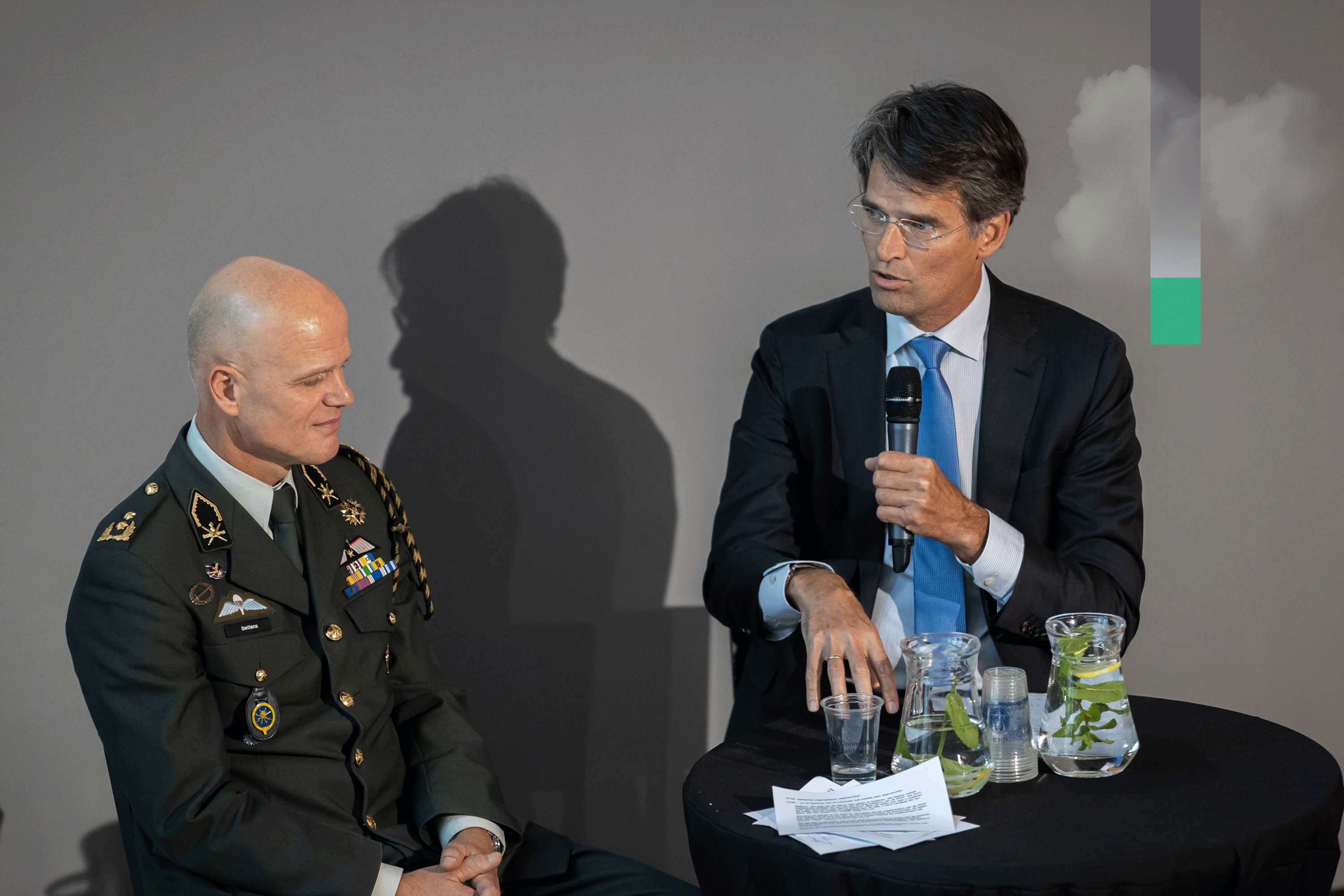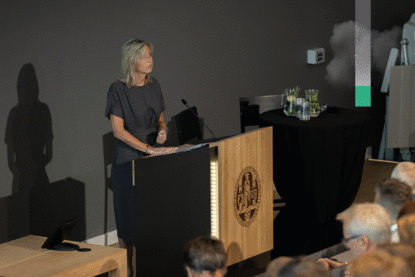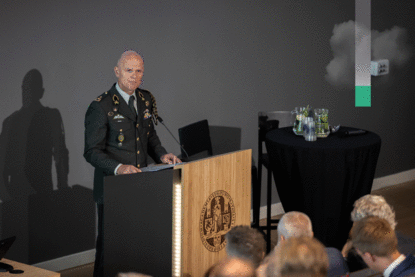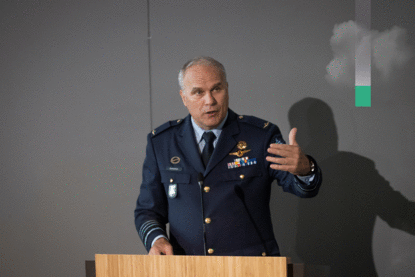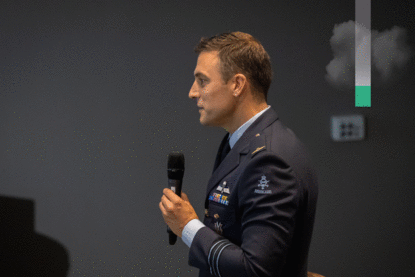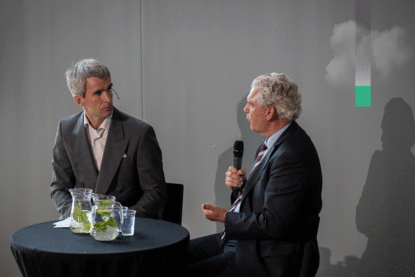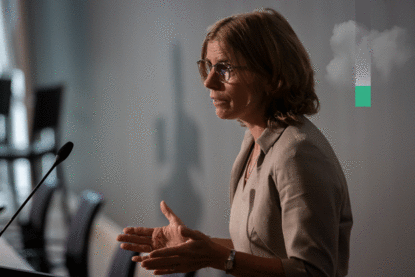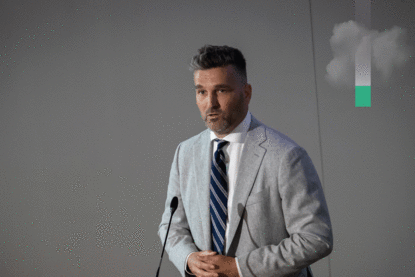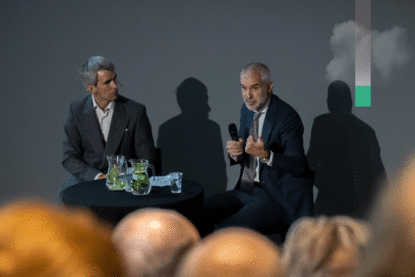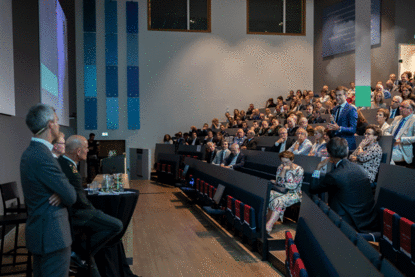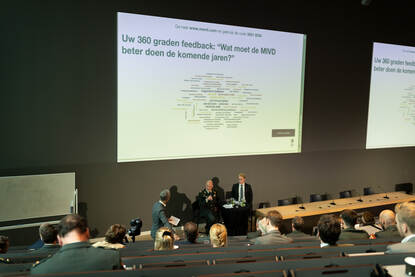Relations between the Netherlands Defence Intelligence and Security Service (DISS) and the Netherlands General Intelligence and Security Service (GISS) have grown rapidly over the past two years. The decision to look to the future jointly and to share data with each other has contributed strongly to this, but at the core of the cooperation is trust, according to General Swillens. In a conversation between the leaders of the two services the mutual esteem is clear to see.
Akerboom: ‘The collaboration with DISS has proven to be very positive in the recent period. To give a very concrete example, until recently we met up three mornings a week to receive a joint briefing on the situation regarding the invasion in Ukraine. That really is a first as far as I am concerned.’
Swillens: ‘I think that at the core of the cooperation is trust. Two years ago we made a fundamental decision to look to the future jointly from a strategic perspective and to combine data from the two services. This was a monumental decision, much more significant than the decision to work together on location more often. Around 40% of our units are joint units, which not a lot of people know. A good example is the Joint Sigint Cyber Unit. But this only works if carried out on the basis of trust. From time to time there is the same healthy friction that you see in any good marriage, but then it is resolved. That is crucial. The enormous amount of work also helps. There is so much going on that we don’t have the luxury of arguing with each other.’
Swillens: ‘From time to time there is the same healthy friction that you see in any good marriage, but then it is resolved.’
Akerboom: ‘We therefore really need the support of others. I think that companies, scientists and perhaps even journalists will be a part of our ‘trusted community’ in the future. We can no longer afford to act alone.’
Swillens: ‘Yes, I think it is incredibly important that we empower trusted channels and operate more transparently. Unless it concerns our modus operandi or protection of sources. We have noted that if you are the first to publicise information, it becomes much more difficult for an adversary to counter it. In addition, Dutch companies developing key technology must share far more information about the vulnerabilities of their technology. Sharing this knowledge is essential to our security.’
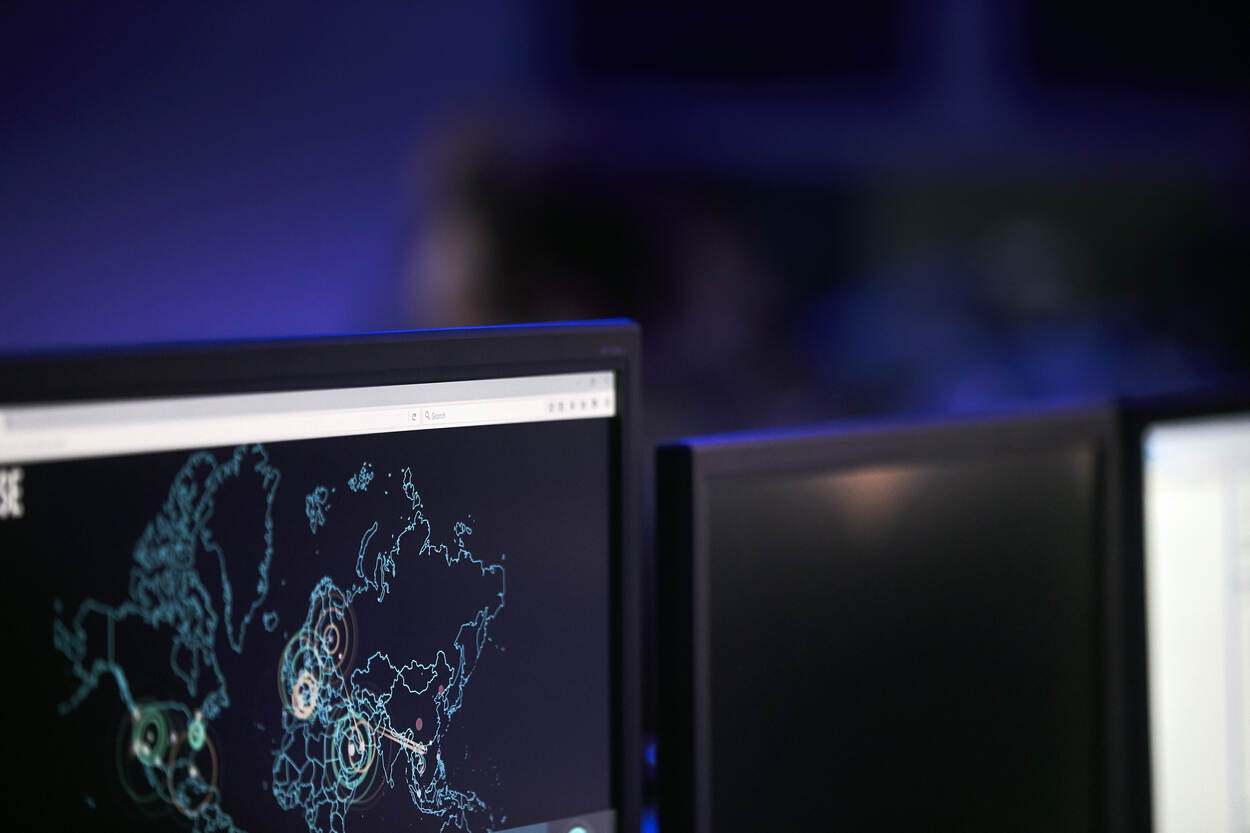
Akerboom: ‘We don’t want to become the same as our adversaries.’
Akerboom: ‘In terms of innovation, GISS and DISS also need to be involved. We need to be part of the development process, to identify the opportunities as well as the threats posed by new technologies.’
Swillens: ‘The industrial sector is party to 70% of our defence secrets – for example the large radar companies. Five years ago 10 to 15 people were occupied with protecting this secret information, but that number has increased enormously. This is not only good for the companies, but it also provides us with insight into the actors who attack these companies.’
Akerboom: ‘I see that the area between war and peace has become very large. That complicates matters for a democracy such as the Netherlands. For example the Chinese have no Intelligence and Security Services Act. We also don’t want to become the same as our adversaries, and we therefore require a legislator to monitor this. But preferably in a dynamic way that works in practice.’
